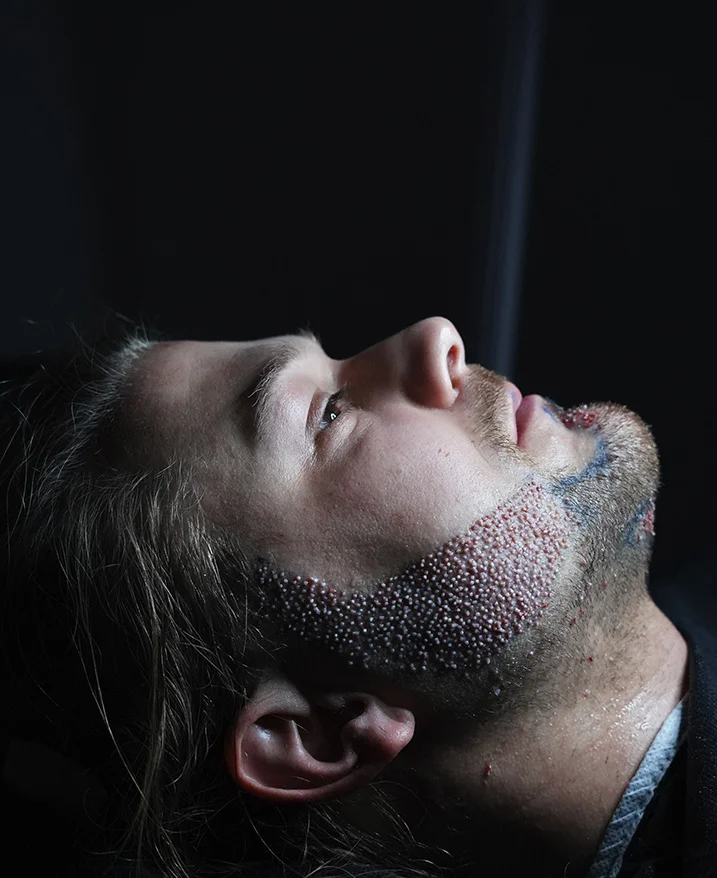Beard Transplant
Beard Hair Transplant in Turkey
Beard transplantation is a highly specialized branch of hair restoration surgery, increasingly popular among men seeking to address patchy growth, scarring, or complete absence of facial hair. Turkey has emerged as a global leader in this field, combining advanced techniques with experienced surgeons and cost-effective packages. This comprehensive guide addresses both informational intent (understanding techniques, procedures, safety, and recovery) and commercial intent (clinic selection, costs, consultations, and travel planning), drawing on standards from the International Society of Hair Restoration Surgery (ISHRS) and the American Academy of Dermatology (AAD).
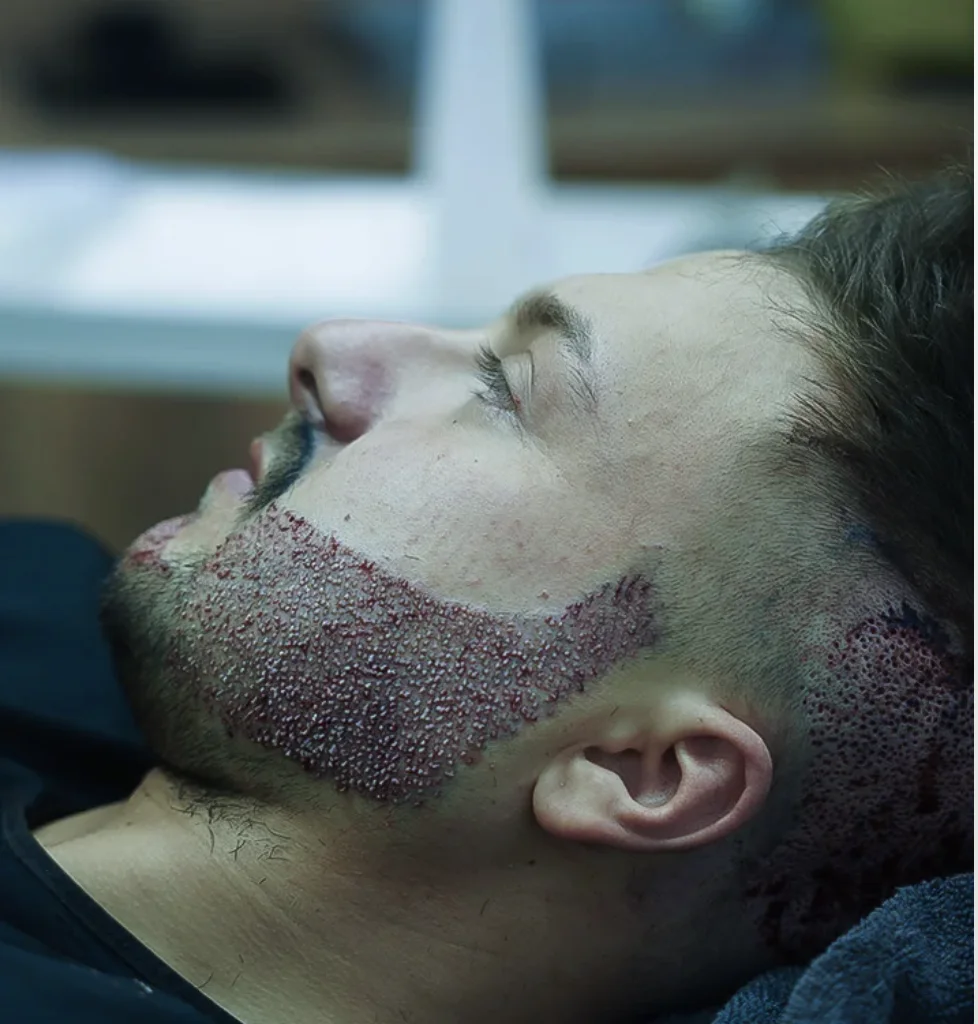

Choosing a Doctor Led Beard Transplant Clinic in Turkey
Choosing a doctor-led clinic ensures the surgeon personally oversees every critical stage, from design to implantation. This hands-on approach significantly improves outcomes and reduces complications, as emphasized by ISHRS guidelines that recommend physician involvement for ethical and effective care. In Turkey, reputable clinics prioritize this model to deliver natural, long-lasting results aligned with international standards.
Surgeon led planning and realistic graft targets
A qualified surgeon conducts detailed facial analysis to create a personalized beard design, considering bone structure, skin type, and existing hair patterns. They establish realistic graft targets—usually 1,500 to 4,000 follicles for full coverage—based on donor supply to avoid overharvesting and ensure sustainable results. This conservative approach, supported by ISHRS recommendations, prevents unnatural appearances and preserves donor areas for potential future needs.
Natural beard design angles and curl alignment
Precise angle and direction placement is essential for authenticity; surgeons implant grafts at 20-40 degrees on cheeks and sharper angles for mustache areas to mimic natural growth. Curl pattern matching, often using scalp hair that aligns with facial textures, creates seamless integration. Experienced surgeons refine these details manually, resulting in beards that look and feel completely natural over time.
Safety checks using NHS and ISHRS patient guidance
Leading clinics implement rigorous pre-operative screening, sterile protocols, and informed consent processes aligned with NHS principles and ISHRS patient safety guidelines. These measures keep infection rates below 1% and ensure patients fully understand risks and benefits. Regular audits and adherence to international hygiene standards further enhance patient protection throughout the journey.
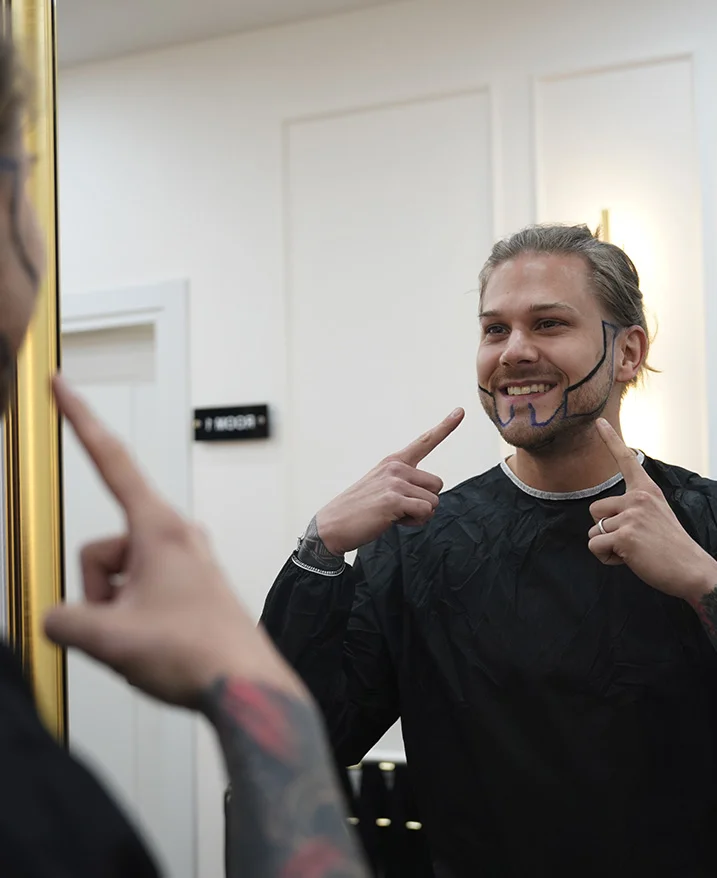

FUE Beard Hair Transplant Technique and How It Works
Follicular Unit Extraction (FUE) remains the preferred method for beard restoration worldwide due to its minimally invasive nature and excellent aesthetic outcomes. Endorsed by the AAD for facial hair procedures, FUE delivers permanent results using DHT-resistant follicles. In Turkey, clinics refine this technique to achieve high graft survival rates exceeding 95%.
What FUE means and why it avoids linear scarring
FUE involves extracting individual follicular units with micro-punches (0.8-1.0 mm), leaving only tiny dot scars that fade completely within weeks. This eliminates the linear scarring associated with older strip methods, making it ideal for patients who prefer short hairstyles or have visible donor concerns. The AAD highlights FUE's superiority for facial applications due to reduced trauma and faster recovery.
Donor hair options from scalp under chin or chest
The posterior scalp serves as the primary donor site because its hairs are androgen-resistant and provide ample supply for dense coverage. Under-chin native beard hair offers perfect texture matching but limited quantity, while chest hair can supplement for curlier patterns when needed. Surgeons select the optimal donor mix during planning to ensure longevity and natural appearance.
Placement angles for a natural looking beard moustache and sideburns
Implantation angles vary by zone: acute angles on the mustache for upward growth, flatter transitions on cheeks, and downward direction along the jawline. Sideburns require careful blending with existing temporal hair for seamless connectivity. This artistic precision, guided by surgical expertise, ensures the beard complements overall facial proportions.
Sapphire FUE and DHI Techniques for Beard Transplant in Turkey
Turkish clinics lead in adopting Sapphire FUE and DHI, offering enhanced precision and healing compared to standard methods. These innovations minimize tissue damage and maximize density, as noted in recent ISHRS publications on advanced instrumentation. Patients benefit from reduced recovery time and superior aesthetic refinement.
Sapphire FUE for full coverage and smoother healing
Sapphire blades create sharper, smaller incisions than steel, allowing higher density placement (up to 50 grafts/cm²) with less trauma. This results in minimal scabbing, reduced swelling, and faster healing—often complete within 5-7 days. Ideal for comprehensive beard restoration, Sapphire FUE delivers robust coverage with excellent graft survival.
DHI for borders moustache and precision placement
Direct Hair Implantation uses Choi implanters to place follicles without pre-made channels, offering unparalleled control over depth and angle. This technique excels in defining sharp borders, mustache detailing, and goatee shaping where precision is paramount. Patients experience even less trauma and more predictable directionality in delicate areas.
FUT vs FUE vs DHI and why FUT is rarely used
| Technique | Advantages | Disadvantages | Best For | Typical Healing Time |
|---|---|---|---|---|
| FUT (Strip) | Higher yield per session | Visible linear scar, longer recovery | Rarely used for beard | 10-14 days |
| Sapphire FUE | No linear scar, high density, smooth healing | Requires shaving donor area | Full beard coverage | 5-8 days |
| DHI | Maximum precision, no pre-channels | Limited grafts per session | Borders, mustache, definition | 3-7 days |
FUT is largely obsolete for facial transplants due to scarring risks in visible areas; modern FUE and DHI variants dominate Turkish practice per ISHRS trends.
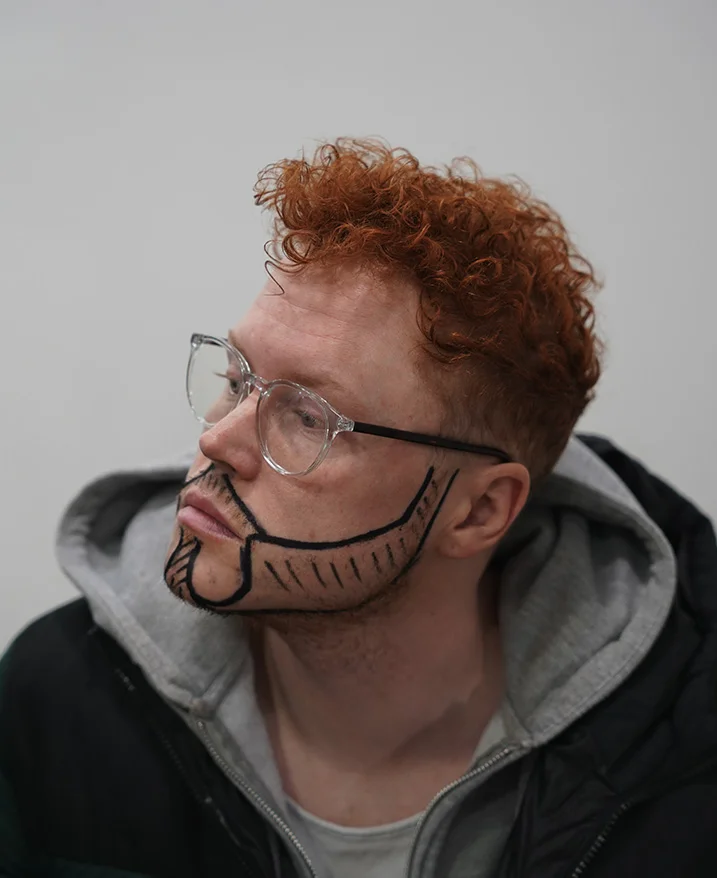

Beard Transplant Procedure Step by Step
The beard transplant process is streamlined for medical tourists, typically completed in one session lasting 4-8 hours. Performed under local anesthesia,it ensures comfort while delivering permanent results. Clinics follow strict protocols aligned with international standards for consistency and safety.
Online evaluation and graft planning before travel
Patients submit high-quality photos for virtual assessment, allowing surgeons to estimate required grafts and preview design options. This preliminary planning minimizes surprises and optimizes outcomes based on individual anatomy. Many clinics provide detailed quotes and timelines at this stage.
Donor harvesting and implantation under local anesthesia
Follicles are gently extracted from the donor zone, sorted, and preserved in specialized solutions before precise implantation. Local anesthesia ensures complete comfort throughout, with optional mild sedation available. Surgeons personally handle critical placement for optimal aesthetic results.
Aftercare instructions before you leave the clinic
Patients receive hands-on washing demonstrations, prescribed medications, and detailed guidelines on sleeping positions and activity restrictions. Clinics provide emergency contacts and schedule initial follow-ups before departure. Clear communication ensures smooth transition to home care.
Safety Comfort and Side Effects After a Beard Transplant
Beard transplants carry low risk profiles when performed by qualified professionals in accredited facilities. ISHRS data indicates complication rates under 2% in reputable settings. Turkish clinics prioritize patient comfort and evidence-based protocols throughout.
Local anaesthetic and sedation options for comfort
Local anesthesia completely numbs treatment areas, eliminating pain during the procedure. Mild oral sedation is routinely offered for relaxation without general anesthesia risks. Patients remain awake and comfortable, often listening to music or watching media.
Common short term effects redness swelling numbness scabbing
Transient redness and swelling peak around days 2-3 before subsiding naturally. Small scabs form and fall off within 7-10 days, while temporary numbness resolves gradually. These expected effects are minimal and manageable with provided care products.
Evidence focused checks using ISHRS NHS and AAD style patient guidance
Clinics conduct thorough pre-screening for contraindications and maintain sterile environments per international guidelines. Post-operative monitoring follows ISHRS and AAD recommendations to ensure optimal healing. Regular follow-ups help address any concerns promptly.
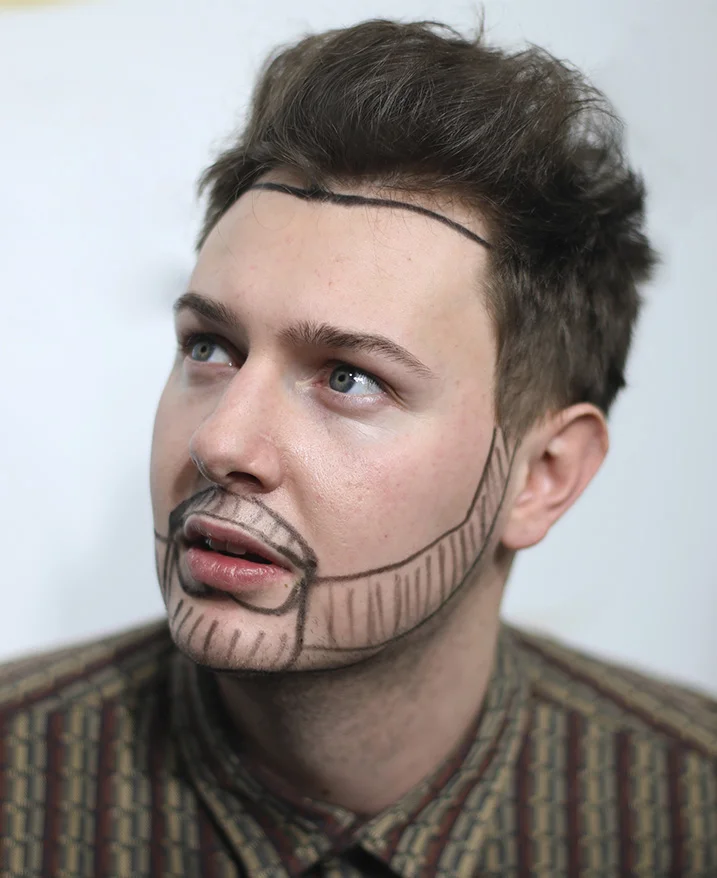

Recovery Timeline and Permanent Results After Beard Transplant in Turkey
Recovery from beard transplantation is straightforward, with most patients resuming normal activities quickly. Results develop gradually but are permanent due to transplanted follicle characteristics. Proper aftercare significantly influences the timeline and final appearance.
Healing time and when you can return to daily routine
Initial healing occurs within 7-10 days, allowing return to non-strenuous work after 3-5 days. Most patients fly home comfortably on day 3 post-procedure. Full facial healing completes by week 2.
Growth timeline from early changes to full results
Shedding of transplanted hairs occurs around weeks 2-4, followed by new growth starting month 3. Significant density appears by month 6-8, with final maturation at 12-18 months. Patience is essential for optimal outcomes.
Long term care trimming shaving and styling after full growth
Once mature (around month 12), the beard can be treated identically to native facial hair. Regular trimming, shaving, and styling are fully possible without restrictions. No special maintenance is required beyond normal grooming.
| Timeline | Expectations | Care Recommendations | Activity Level |
|---|---|---|---|
| Days 1-7 | Redness, swelling, scabbing | Gentle washing, avoid touching | Rest, limited social |
| Weeks 2-4 | Scabs gone, possible shock loss | Moisturize, protect from sun | Normal non-physical work |
| Months 3-6 | Initial growth visible | Begin light trimming | Full routine, shaving OK |
| Months 9-18 | Full density and texture | Style freely | Unrestricted |
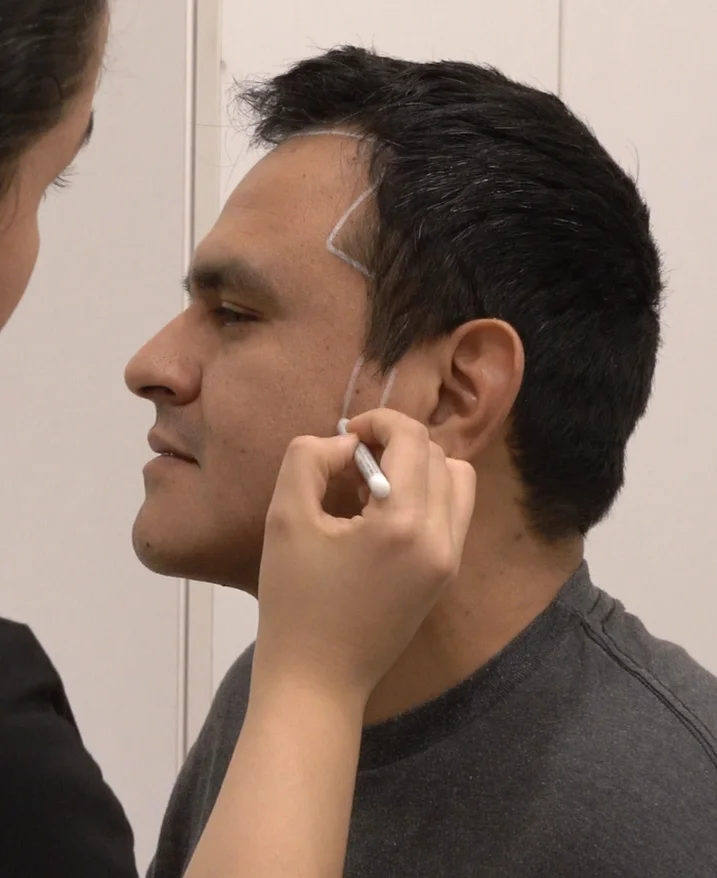

Book a Beard Hair Transplant Consultation in Turkey
Early consultation enables accurate planning and realistic expectations. Leading clinics offer free virtual assessments with experienced surgeons. This step is crucial for personalized treatment design.
What to prepare before your assessment and hair analysis
Gather clear photographs from multiple angles (face, donor area) under good lighting. Compile medical history including medications and previous procedures. Prepare questions about desired style and density goals.
How beard design goals shape graft planning and density
Specific requests (full beard versus goatee) directly influence graft allocation and zoning strategies. Higher density targets require more follicles and potentially multiple sessions. Surgeons balance aesthetics with donor conservation.
What to ask about the surgeon team and aftercare access
Inquire about the surgeon's personal involvement, ISHRS membership, and case volume. Ask about long-term follow-up protocols and communication channels. Confirm warranty policies and revision options if needed.
Beard Hair Transplant in Turkey Cost Packages and What Is Included
Turkey offers exceptional value, with costs 60-80% lower than Western countries while maintaining high standards. Packages typically include comprehensive services for seamless medical travel. Transparent pricing avoids hidden fees.
Fixed pricing options and what your plan can include
Many clinics offer all-inclusive packages from 2,500-4,500 USD depending on graft requirements and technique. Istanbul Care provides competitive doctor-led options starting at 1,990-2,500 USD with unlimited grafts where appropriate. Premium inclusions often feature PRP therapy and medications.
Transfers and coordination for medical travel in Turkey
Standard packages cover airport transfers, hotel accommodation (3-5 nights), and dedicated patient coordinators. English-speaking staff handle all logistics from arrival to departure. This comprehensive support minimizes travel stress.
How to compare value and safety standards without cutting corners
| Factor | Budget Clinics | Premium Doctor-Led (e.g., Istanbul Care) |
|---|---|---|
| Price Range | 1,990-2,800 USD | 1,990-3,000 USD |
| Surgeon Involvement | Variable/technician-heavy | Personal oversight throughout |
| Technique | Standard FUE | Sapphire FUE/DHI options |
| Aftercare Support | Limited | 12-18 months with warranty |
| Accreditation | Basic | JCI-aligned, ISHRS standards |
Prioritize verified reviews, surgeon credentials, and facility standards over lowest price for optimal safety and results.
Planning Your Beard Transplant Trip to Turkey
Medical tourism to Istanbul combines treatment with efficient scheduling. Most patients require minimal stay while receiving comprehensive care. Planning ahead ensures smooth experience.
Recommended Stay Duration in Istanbul
A typical itinerary spans 3-5 days: arrival and consultation day 1, procedure day 2, post-op wash and check day 3. Additional rest days are optional but beneficial. Many return home safely on day 4.
Travel and Accommodation Arrangements
Packages include VIP transfers and 4-5 star hotel stays near the clinic. Flights are affordable from major hubs worldwide. Coordinators assist with visa requirements when needed.
Follow Up Care and Support After Procedure
Clinics provide daily initial checks followed by remote monitoring via photos for 12-18 months. WhatsApp support ensures prompt responses to concerns. Many offer complimentary touch-ups if density falls below expectations.
